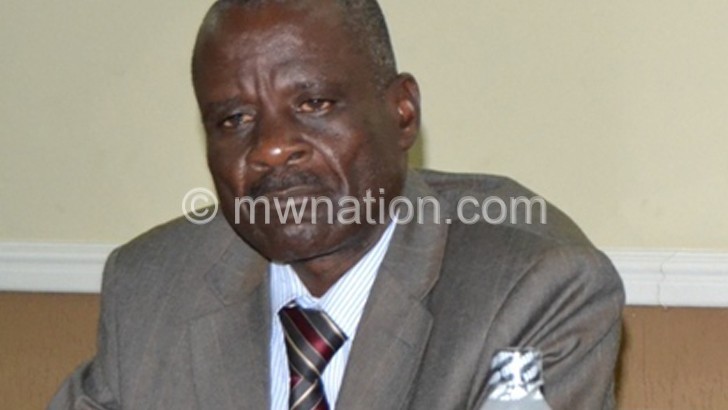TUM warns govt about silence
Teachers Union of Malawi (TUM) has expressed concern over government’s “deafening” silence on their efforts to resolve issues related to demands on Covid-19
risk allowances. The union has since given government one week to bring the matter on the table for the two parties to find solutions.
Since last year, TUM has been demanding the allowances and engaging in strikes.
However, TUM and government signed a consent order on April 12 this year for the teachers to resume work and have a court processed government initiated postponed pending negotiations.

Three weeks after the order, government is yet to initiate contact with TUM despite numerous reminders from the teachers who now feel short-changed, and want to decide on the next course of action.
Mean while , an education activist and Chancel lor Col lege Academic Staff Union (Ccasu) have decried government’s underhand tactics on the matter.
In an interview yesterday, TUM president Willy Malimba said they are surprised that even the Civil Servants Trade Union (CSTU), which is supposed to help with the negotiations, has remained quiet on the matter.
He said: “It’s been 15 days since the consent order and we just want to give them 21 days. It’s surprising what the government is doing on the matter. So, we are giving the CSTU and government just one week to monitor what they will do and we take another action.
“We are surprised with what kind of negotiation skills that government is employing because it all seems that things are just deliberately put on a stop button. But we [will] wait for just this one week and we will let you know the next course of action.”
But when contacted for comment yesterday, CSTU secretary general Madalitso Njolomole said TUM was better-placed to speak on the matter, adding, “CSTU is not a reconciliator in the negotiations.”
Acting Principal Secretary for Education Raphael Agabu said he is on leave, and could not comment on the matter, insisting, “If I am on leave, I cannot be speaking on official matters.”
Meanwhile, Civil Society Education Coalition executive director Benedicto Kondowe has decried the situation, saying government was supposed to lead the discussion, but it has decided to abdicate responsibility.
He said: “The dilemma we may find ourselves in is that the stay-away might resume during the next term in June, which might be too damaging. If not, TUM might move the Labour Commissioner for reconciliation, because it will be deemed at law that settlement has failed.
“We believe both parties should seize the holiday as negotiation time so that all issues are not taken to next term. We have already lost a lot of time, and we don’t need to waste more time. Look at the MSCE results, they speak volumes and no leader would want to have students in homes and not classes, we cannot just afford that nonsense!”
Kondowe said they will write government on the matter tomorrow as one way of ensuring that the issue is resolved in good time to avert another strike by the teachers.
Last week, Ccasau noted with concern the strategies Government has
used in handling the labour dispute with TUM, saying , they are underhand tactics employed by government to stifle unionism.
A statement signed by Ccasu president Tiyesere Chikapa issued on April 28 al leges that such tactics were aimed at taking the country back to an era when unionism was forbidden.
It reads: “Instead of trying to resolve the stand-off amicably, Ccasu noted the fol lowing strategies meant to frustrate the spirit of unionism: Intimidating the leadership of the union with dismissal; using subtle tactics to divide the leadership of the union;
“Threats to delete from the payroll/withhold pay of teachers who had withheld their labour; efforts to cripple the union financially by threatening to stop collecting union subscription; negation of good faith in negotiations demonstrated by going to court while in the middle of talks and backtracking on a signed agreement.”
On March 8 2021, the Joint Committee of Education and Social and Community Affairs in Parliament engaged TUM and Ministry of Education to resolve the impasse, but a resolution made at the meeting to pay the teachers three months Covid-19 allowances was not implemented.
Last year, schools were closed on March 23 for five months following government’s order to prevent the further spread of Covid-19 during the first wave.
Early this year, schools were also closed for five weeks fol lowing the second wave of the pandemic.
When government announce d the r e – opening of schools in February, learners in public schools were further affected by the teachers’ strike, which went on for two weeks as TUM demanded a Covid-19 risk allowance.
The 103 003 teachers u n d e r T U M a r e demanding a minimum of K50 000 a month in risk allowances, translating to K5.15 bil l ion and K15.45 billion for three months.





